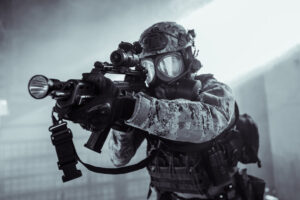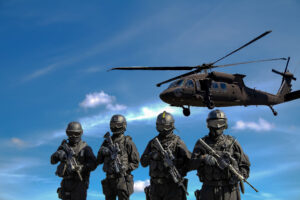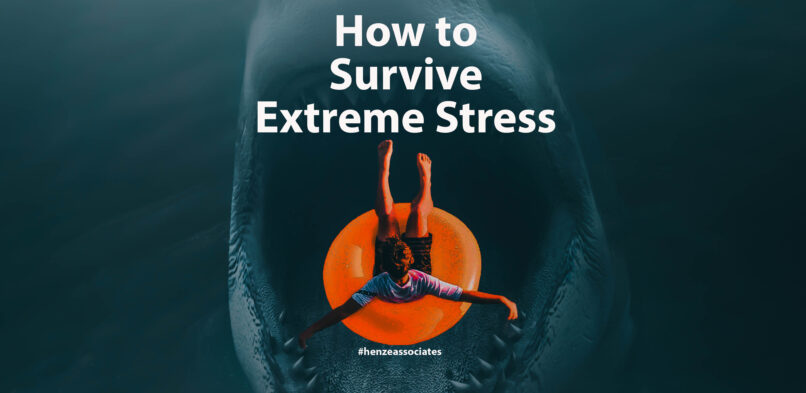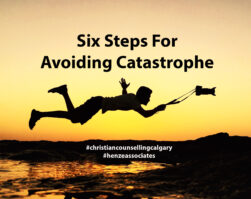Calgary Counselling Services: A significant portion of my client load is comprised of first responders and other front-line medical people – many of whom are working on units devoted to COVID 19 patients or directly in the ICU. Of late, the stress levels so many of them live under have begun to transform them, and not in positive ways.
Many of these professionals seeking help through our Calgary counselling centre are on multiple sleep medications for the first time in their lives. Far too many of them are newly on cocktails of anti-anxiety drugs or antidepressants, and some are on all of the above.
The majority of them are struggling with chronic anger at the willful ignorance and arrogant selfishness of gallivanting politicians and anti-maskers who persist in denying the seriousness of the problem, spreading a largely controllable virus and inflicting suffering on so many of our most vulnerable. Some are beginning to display mood disorders or various critical stress injuries (such as Post Traumatic Stress Disorder) from the horrors they have seen. At the same time, they daily risk their lives trying to alleviate the pain this virus can bring to both young and old.
 This reality, unfortunately, is being mirrored world-wide. Researchers are only beginning to grasp the impact this virus is having on our medical professionals, but early reports from England are placing the “prevalence of psychological distress at 44.7% of respondents in the build-up to the first wave’s peak, 36.9% at the peak and 31.5% as it declined.”
This reality, unfortunately, is being mirrored world-wide. Researchers are only beginning to grasp the impact this virus is having on our medical professionals, but early reports from England are placing the “prevalence of psychological distress at 44.7% of respondents in the build-up to the first wave’s peak, 36.9% at the peak and 31.5% as it declined.”
Medical professionals are, if nothing else, well known for their skills at keeping a stiff upper lip and looking like everything is great. They sit in counselling sessions cracking macabre jokes about their ICU having become the pre-boarding lounge area for the hospital morgue as they attempt to cope with the helplessness they are experiencing.
But, the brave faces and the grim humour covers little.
This article is for them.
Calgary Counselling Services: How to Survive Extreme Stress.
Most psychologists and Calgary counsellors hate quick fixes and bandaids. As our key focus, we have a drive to help people deal with deeply rooted issues and achieve lasting wellness. That pursuit is foundational to everything Ros and I have been attempting to bring to our clients for over two decades, and it’s unlikely to change any time soon.
That being said, much of this may appear to contradict that focus.
Simply put, there is a time for in-depth healing and transformation, and there is a time just to survive until you get out of the foxhole. Our increasingly overtaxed medical people live daily in that foxhole and probably will be coping with extreme stress for the next six months or more. This is about how to survive.
Types of emotional and psychological stress and trauma:
 The majority of stressful and traumatic events are one-off events. They may result from a violent attack, a sexual assault, a childhood injury, an accident, a sudden death, a relational loss and even childhood surgery. While the effects of these one-time events can be lasting and destructive, the risk of recurrence is low, and stress counselling or trauma therapy can immediately focus on in-depth healing.
The majority of stressful and traumatic events are one-off events. They may result from a violent attack, a sexual assault, a childhood injury, an accident, a sudden death, a relational loss and even childhood surgery. While the effects of these one-time events can be lasting and destructive, the risk of recurrence is low, and stress counselling or trauma therapy can immediately focus on in-depth healing.
Obviously, any threat to safety or life that creates that overwhelmed and isolated state of frightened helplessness is serious and needs to be addressed. Still, there is an enormous difference between an isolated incident of trauma and living through the ongoing stress of extraordinarily long-term events. That difference is seen both in the extent of the trauma as well as in the difficulty involved in changing the patterns that have resulted from it.
Relentless and ongoing stress is something entirely different from a one-off event. When a person is undergoing long-term domestic violence, childhood neglect or bullying, battling for their lives against an illness or growing up in a war zone, the profound helplessness and shattered sense of security reaches a whole new level.
The ongoing nature of the relentless stress that this virus has brought to our front line caregivers fits solidly into the second category. It can be so much more pervasive than one-off traumatic events. Ongoing stress brings with it chronic anxiety, a swirling fog of confusing emotions, intrusive memories, creeping numbness, a dissociated sense of disconnection and an increasing sense that no one, anywhere, is to be trusted. Nowhere is that sense of distrust worse than when the person undergoing the stress hears from those around him or her that the subjective emotional experience they have undergone is invalid – as our politicians have so brilliantly accomplished this Christmas…
 The steps to surviving that sort of extreme and relentless stress are rarely discussed within the psychological community — but incredibly well understood within military circles. When our military servicemen and women deploy into the high lethality environment is that modern distributed conflict, they do so knowing that their time in that environment is limited and that they must survive first and then heal later.
The steps to surviving that sort of extreme and relentless stress are rarely discussed within the psychological community — but incredibly well understood within military circles. When our military servicemen and women deploy into the high lethality environment is that modern distributed conflict, they do so knowing that their time in that environment is limited and that they must survive first and then heal later.
Over the years, I think I probably have learned more from our military (and associated) clients in this area than they have learned from me and the understandings that this article is based upon are largely the result of those conversations:
Steps of survival in the face of extreme and relentless stress:
(1). Daily rhythmic exercise: One of the most effective tools for coping with trauma comes from physical reassociation with your own body. Trauma knocks everything in our mind and body off balance and then traps us in fear and a cortisol flooded state of hyperarousal.
Rhythmic activity that involves your entire body has a twofold benefit: It burns off the excess cortisol and adrenaline while generating an endorphin release, and it creates a mindful state of connection to our bodies. The entirety of Basic Training for military and law enforcement is centred around drills of this nature.
(2). Maintaining Health: Stress and trauma are so much easier to deal with if our physical bodies are healthy. Keeping physical health starts with cutting out drugs, alcohol, garbage carbohydrates and Omega 6 or 9 fatty acids, as all of the above can create feelings of isolation, anxiety and depression.
Fill your diet with protein (especially types rich in Omega 3 fatty acids) and vegetables and limit your carbs to more primitive types. Try to maintain a regular sleep schedule of at least 7 hours per night and do what you can to reduce any other stress you can control.
 (3). Maintain Connections: Extreme stress has an innate ability to convince us that we are the only ones experiencing it. (After all, everyone else looks better than I feel…) It causes us to isolate and withdraw from those who care about us, in part because we fear all they will want to talk about is what we would rather ignore. The problem is, loneliness only makes stress and trauma worse. The formation of military and police units into squads and teams is the psychological creation of a second family that can powerfully meet this need.
(3). Maintain Connections: Extreme stress has an innate ability to convince us that we are the only ones experiencing it. (After all, everyone else looks better than I feel…) It causes us to isolate and withdraw from those who care about us, in part because we fear all they will want to talk about is what we would rather ignore. The problem is, loneliness only makes stress and trauma worse. The formation of military and police units into squads and teams is the psychological creation of a second family that can powerfully meet this need.
It’s OK not to be ready to talk about the stress and still connect with others. Just being with other people and feeling loved and accepted by them is an incredible comfort. Having a safe place to share your feelings and reconnect with people you know will not judge you for having them strip most of the power those feelings have to paralyze us. And, if there’s no one else, join a support group of like-minded people over Zoom.
(4). Arousal Control: Learning to reregulate your physiology is critical for surviving extreme and prolonged stress. Large parts of military training are about arousal control skills that use your body to hack your brain, causing your brain to respond like you are getting ready to sleep. While there are many different techniques under this heading, there are two that really matter: Progressive relaxation and diaphragmatic breath control.
Progressive relaxation is based on the understanding that we often have no idea how stressed we actually are and teaches us to cue our muscles to relax through a paradoxical process of tensing those muscles, and then reversing the process.
Diaphragmatic breath control is a means of slowing down and deepening your breathing to reduce over-breathing and hyperventilation. Together they break the feedback loop that is anxiety or panic and train you to regain control of your physiology as you come up against the various stressors you face.
 (5). Visualization Skills: All of us, even Calgary therapists, would like to believe we are in touch with and engaging the real world – but that’s not really true. Every one of us has a mental stage on which our visions of ourselves, others and the world play out, and all of those elements are both highly subjective and foundational to how we upset ourselves. The key is, if we can use our visions of the future to create fear, then we can also use different visualizations to take that fear away.
(5). Visualization Skills: All of us, even Calgary therapists, would like to believe we are in touch with and engaging the real world – but that’s not really true. Every one of us has a mental stage on which our visions of ourselves, others and the world play out, and all of those elements are both highly subjective and foundational to how we upset ourselves. The key is, if we can use our visions of the future to create fear, then we can also use different visualizations to take that fear away.
Mental imagery starts with learning how to create a rich, symbolic and multi-sensory internal experience of the highest accuracy and realism possible – overwriting the false stories we often tell ourselves. It then progresses with the addition of controllability, wherein we discover how to take control of those internal images and other sensory experiences to shape them. That capacity to re-envision our present and our future allows us to find creative solutions, regain a sense of autonomy and control and then train our brains to carry out new strategies to deal with stressful situations and traumatic experiences.
(6). Creating systems: Goal setting doesn’t work because the setting of a goal instantly makes you into a person who, as yet, is a failure in meeting that goal. As soon as you feel like a failure, motivation is sapped, and stress replaces it.
Successful people may figure out where they want to go, but they forget about it as soon as possible – the moment they have devised a system to work that will eventually get them there. Figuring out a strategy and then daily or hourly working that system puts you into a constant success state. Even if you can only change one tiny part of what is causing you stress, the satisfaction of working your system and having that impact enables you to re-envision yourself as powerful, reducing helplessness and, thus, stress.
(7). Changing the stories you tell yourself: It’s so easy to make up a set of stories about how terrible things will be, but it’s also very possible to replace them with a sense of pride and dignity found in how well you can cope. Our internal dialogue is far more in our control than most of us believe, and so much can be done to talk over and contradict those pervasive voices in our heads.
Hate, rage, terror and depression are easy thought processes to default to – when what we actually feel may be closer to dislike, irritation, nervousness and sadness. Learning how to moderate our thinking and replace irrational messaging with more rational and constructive internal dialogue allows us to derail self-defeating thinking and even use stress in productive ways.
(8). Learn to harness stress through intermittent engagement: It’s so easy to get overwhelmed by an endless list of tasks and then obsessively worry about all of them until you can’t think or remember and have no energy for accomplishing any of them. But, while long-term stress interferes with glucose delivery to your brain and blocks memory formation, short-term engagement with stress can do the opposite.
When stress is encountered in short bursts, the brain is flooded with glucose, enhancing memories’ formation and retrieval. Picking your battles is essential. Harnessing stress involves identifying a few critical tasks, letting the rest slide and then attacking those high-priority tasks in bursts.
 (9). Teach yourself to face the worst-case scenario: This may seem like it contradicts #5 and #7 above, but it doesn’t. So much of psychology is deeply invested in positive thinking, skills of rationalizing or ignoring fears and telling themselves happy thoughts. Little of that works, and everyone on down from Saturday Night Live knows it. In contrast, military and law enforcement training focuses on the worst-case scenario.
(9). Teach yourself to face the worst-case scenario: This may seem like it contradicts #5 and #7 above, but it doesn’t. So much of psychology is deeply invested in positive thinking, skills of rationalizing or ignoring fears and telling themselves happy thoughts. Little of that works, and everyone on down from Saturday Night Live knows it. In contrast, military and law enforcement training focuses on the worst-case scenario.
Research repeatedly shows that anxiety is best overcome by imagining the very worst possibilities. When we immerse ourselves in a rich, multi-sensory fantasy of the bleakest outcome possible and then fully experience the intensity of emotion that comes from it, we are training our minds to stay focused in the face of that fear so that its impact is later minimized in real life.
When we augment that fantasy with a strategic imagining of our best plan to cope with the worst possible scenario, we get over new anxiety faster and train ourselves to act in the most effective ways possible.
Let’s put all of the above pieces together:
(I freely admit that this is a disgusting example, but it makes the point better than anything else.)
The preparation a military, special forces or other government operative goes through before performing a lethal force related act that would unleash a disabling wash of guilt, shame and PTSD in nearly everyone else is a bleak but essential skill for surviving severe and prolonged stress. Most of the above elements of exercise, health, thought control, and belongingness to a team are taken care of in basic training for a military or paramilitary operative. They are certainly well equipped with self-regulation skills during such.
But, on that foundation, something much more complicated is built:
 Before performing the mission, the operative alters his or her state of mind in a Zen-like manner. All other thoughts and emotions are discarded in the preparation of a focused machine-like state. The target is depersonalized using whatever the pejorative of the day is. All responsibility is disowned (“just following orders”), and the self is seen as a simple tool to complete the job. The fear and anxiety are fully felt and then pressed through as a full commitment to the task emerges. The operative begins to mentally vision through every tiny component of the plans that s/he and the rest of the team have made, mentally envisioning the worst possible outcome and treating each one as a solvable problem.
Before performing the mission, the operative alters his or her state of mind in a Zen-like manner. All other thoughts and emotions are discarded in the preparation of a focused machine-like state. The target is depersonalized using whatever the pejorative of the day is. All responsibility is disowned (“just following orders”), and the self is seen as a simple tool to complete the job. The fear and anxiety are fully felt and then pressed through as a full commitment to the task emerges. The operative begins to mentally vision through every tiny component of the plans that s/he and the rest of the team have made, mentally envisioning the worst possible outcome and treating each one as a solvable problem.
A set of procedures are devised for each negative development and mentally rehearsed until the response to each potential situation that could derail the plan becomes automatic. The fear, visioning and planning finally come together to create a focused burst of engagement with an extremely stressful situation such that the operation takes place.
Then a switch occurs.
Practically before the body hits the ground, the operative turns away to avoid storing more memories of the death and heads towards the extraction point the team has set. As soon as the team is extracted, the entire team will head for a bar (as a surrogate family unit) to “tie a few on” such that the alcohol further interferes with the storage of memories. He or she will often pick up and sleep with someone from that bar to additionally cause the brain to focus elsewhere, thus overwriting potentially trauma-inducing memories even further and allowing a shift back into everyday life and connection.
Developing a personal system to survive unrelenting stress:
Obviously, that’s a terrible picture, but we can easily adapt the skills taught to our police and military specialist clients to the task of saving instead of destroying lives, long past the point that others would have crumbled.
That sequence is:
- Full commitment/ending avoidance.
- The creation of clinical distance.
- Envisioning the worst-case scenario.
- Embracing the fear.
- Mentally rehearsing systems and procedures to solve every problem.
- Taking action in intense bursts.
- Shifting focus from potentially traumatic details.
- Exiting and releasing.
- Immersion back into community, life, love and relationships.
- Discussion/Processing of any residual emotional attachments.
These steps are how people have survived unimaginable situations for millennia. When the job is done and we leave that machine-like state, we can then move just as strongly in an associative direction (re-engaging with those who love us), conserving our limited capacity to engage emotionally. This allows us to use those resources with those who can help carry the load and heal the inevitable psychological wounds that will still emerge.
Calgary Counselling Services: Come and learn how to survive extreme, prolonged and unrelenting stress.
 Nearly everyone who gets into medicine or a health-related field does so to care for others. Many, out of a reaction to childhood neglect, will empathically give of themselves far beyond what they reasonably should, sometimes at a tremendous cost. Selfless altruism has its time and place, as also does taking the time to heal those deeply buried wounds of the past. However, the time and place for that is not necessarily in the midst of long term extreme stress.
Nearly everyone who gets into medicine or a health-related field does so to care for others. Many, out of a reaction to childhood neglect, will empathically give of themselves far beyond what they reasonably should, sometimes at a tremendous cost. Selfless altruism has its time and place, as also does taking the time to heal those deeply buried wounds of the past. However, the time and place for that is not necessarily in the midst of long term extreme stress.
During times of prolonged and unrelenting stress, it’s crucial that we carefully weigh each demand on our mental and emotional resources. Unless we cut off anything that is not essential to doing the job and taking care of our physical, emotional and relational world, there is a good chance we may end up as a patient instead of a healer.
So, if you’re starting to feel like you have nothing left and are searching for a Psychologist in Calgary, then reach out to our Calgary Counselling Services today and discover how we can help you survive and maybe even thrive during this challenging time.












